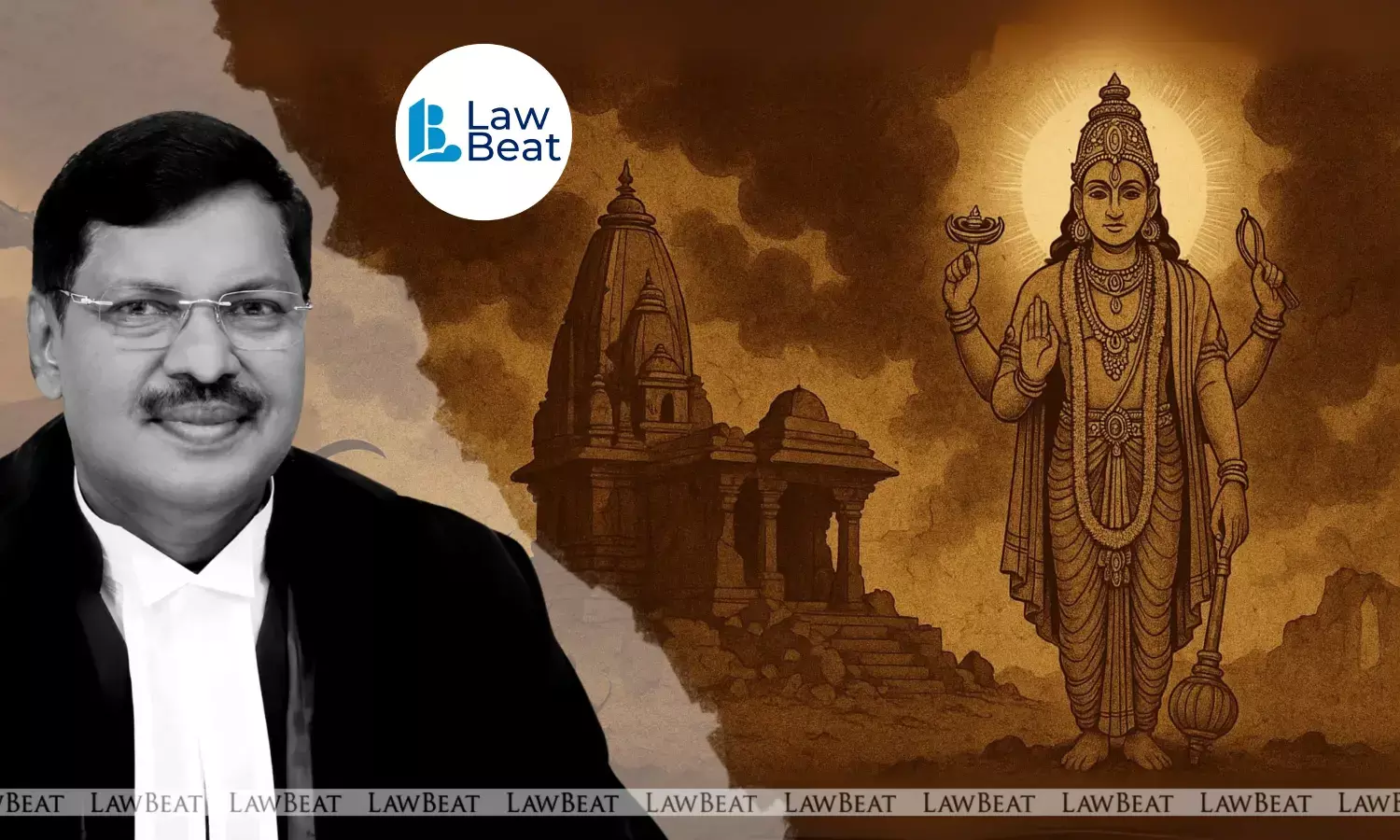Advocate Seeks Withdrawal of Remarks on Hindu Faith from CJI in Khajuraho Idol Case

Letter to CJI B.R. Gavai highlights concerns over remarks on Lord Vishnu idol petition at Khajuraho temple
An advocate has formally approached the Chief Justice of India B.R. Gavai requesting reconsideration and withdrawal of remarks made during a Supreme Court hearing that allegedly hurt the religious sentiments of Hindus.
The plea, set out in a letter addressed to the Chief Justice, centers around oral observations reportedly made in proceedings concerning a petition that sought directions for the reconstruction and reinstallation of a dilapidated idol of Lord Vishnu at the historic Javari Temple, part of the UNESCO World Heritage Khajuraho temple complex in Madhya Pradesh.
The representation has been made by Advocate Vineet Jindal, who describes himself as a devoted follower of Sanatan Dharma and Lord Vishnu. In his communication, he states that while courts have full discretion to decide whether to admit or reject a petition, such discretion must be exercised with due care to ensure that religious sentiments are not unnecessarily hurt in the process.
He stresses that the observations attributed to the Bench, including the remarks “Go and ask the deity himself to do something” and the suggestion “so go and pray now,” as reported by several media outlets, have caused deep anguish to millions of Hindu devotees.
According to Jindal, these words, though not part of the judicial record, have been widely circulated and have created a perception of insensitivity towards the religious beliefs of a significant community.
He maintains that faith is a protected right under Article 25 of the Constitution of India and deserves the utmost respect from all institutions, especially the judiciary, which stands as the guardian of constitutional values.
The letter highlights that the Archaeological Survey of India (ASI) and other competent heritage bodies remain the proper authorities to decide on the restoration and conservation of idols and temples that form part of protected monuments.
However, Jindal emphasizes that the core issue lies not in the jurisdictional question of restoration but in the necessity and appropriateness of making comments that appear to belittle or dismiss religious devotion.
The advocate’s communication requests the Chief Justice to reconsider and withdraw the reported remarks, contending that such a corrective step would serve the dual purpose of protecting the dignity of the Supreme Court and upholding India’s secular fabric.
Jindal further argues that a gesture of withdrawal would send out a strong message of judicial propriety and impartiality while fostering national religious harmony. The representation has also been copied to the President of India, underscoring the seriousness with which the advocate views the matter.
In his closing prayer, Jindal calls upon the Chief Justice to reaffirm the court’s commitment to respecting all religions equally and to avoid any perception of judicial insensitivity.
The controversy arises against the backdrop of a petition that sought intervention in relation to the Javari Temple at Khajuraho, a site globally recognized for its architectural and cultural heritage.
The temple, dedicated to Lord Vishnu, has long been maintained under the custodianship of the ASI. The petition sought judicial directions for reconstruction and reinstallation of the idol, which was said to be in a dilapidated condition. While the Supreme Court did not entertain the petition, the oral remarks made during the hearing have become the focus of public discourse, prompting this formal letter.
The issue once again highlights the delicate balance that constitutional courts must maintain between judicial discretion, freedom of expression within courtroom proceedings, and the duty to respect religious sentiments in a diverse and plural society. While oral remarks are not binding judicial orders, their public perception can influence discourse far beyond the courtroom.
The letter reflects a call for restraint and sensitivity in judicial language, particularly in matters touching upon faith and belief.
It emphasizes that the constitutional guarantee of religious freedom is not limited to legal protections alone but extends to the respectful acknowledgment of faith by public institutions.
By seeking withdrawal of the remarks, the advocate urges the judiciary to reinforce its role as a protector of both constitutional values and the dignity of citizens religious convictions.
